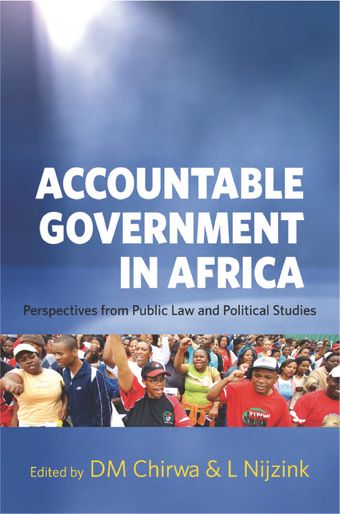Balancing independence and accountability: The role of chapter 9 institutions in South Africa’s constitutional democracy

- Author: Pierre de Vos
- Main Title: Accountable Government in Africa , pp 160-177
- Publication Date: April 2013
- DOI: https://doi.org/10.18356/055d2677-en
- Language: English
In 1994 South Africa emerged from a racially divided and oppressive past which disrespected human rights and the most basic tenets of the rule of law. The new democratically elected government inherited a state which was ‘farcically bureaucratic, secretive and unresponsive to the basic needs of the majority of its citizens’ (Ad Hoc Committee 2007: 3). Most state institutions had little or no credibility, were profoundly distrusted by the majority of the people and were not accountable in any credible manner, either to courts or to one another. For some constitutional negotiators, it was therefore clear that transforming the South African society from an intensely oppressive into an open and democratic society would require more than a change in the system of government. It was necessary to create a set of credible independent institutions to strengthen constitutional democracy and to promote an open and accountable government, steeped in the disciplining paradigm of human rights.
© United Nations
ISBN (PDF):
9789210552851
Book DOI:
https://doi.org/10.18356/da13d22e-en
Related Subject(s):
Democracy and Governance
Sustainable Development Goals:
Countries:
South Africa
-
From This Site
/content/books/9789210552851c013dcterms_title,dcterms_subject,pub_keyword-contentType:Journal -contentType:Contributor -contentType:Concept -contentType:Institution105
/content/books/9789210552851c013
dcterms_title,dcterms_subject,pub_keyword
-contentType:Journal -contentType:Contributor -contentType:Concept -contentType:Institution
10
5


